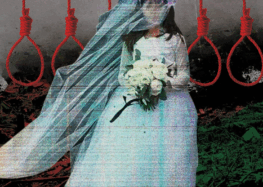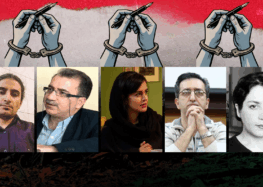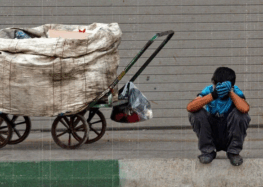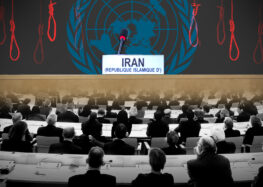Iran’s Mass Executions of Drug Offenders Are a Human Rights Emergency
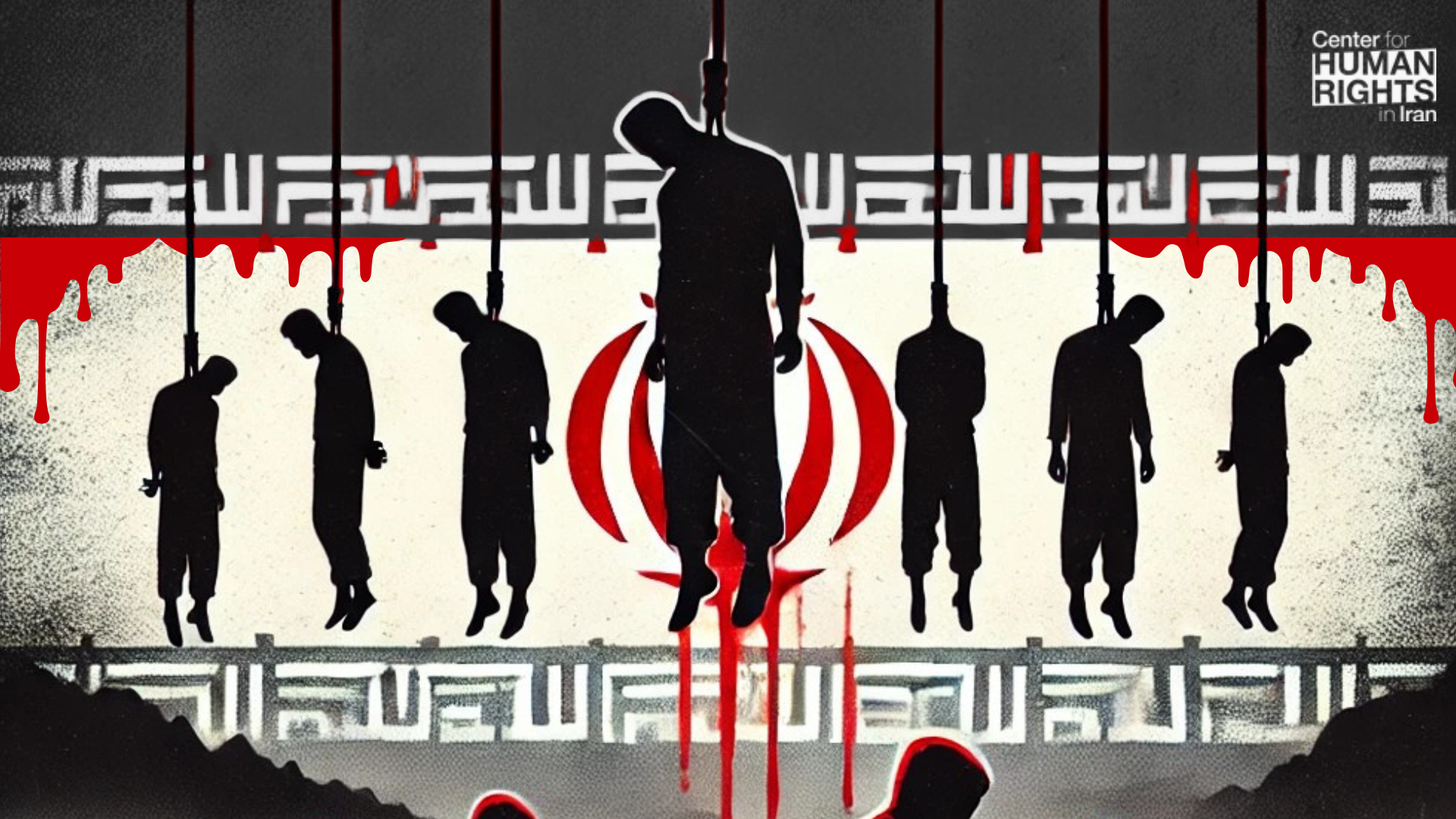
Over 100 Executed in Just Three Months for Drug Offences
Former Prisoner and Lawyers Reveal Blatantly Unlawful Judicial Proceedings
April 16, 2025 — Hundreds of men and women are being unlawfully executed in Iran every year—secretly, relentlessly, and without fair trials—for alleged drug offenses in judicial proceedings that violate every single law and standard regarding capital punishment. These killings amount to a mass atrocity, the Center for Human Rights in Iran (CHRI) said today.
Research by CHRI, which includes detailed interviews with lawyers working these cases in Iran and former prisoners who were convicted of drug crimes, has revealed these executions are carried out after grotesque miscarriages of justice, including:
- The right to counsel and all other fundamental aspects of due process are denied;
- Cases of bewildered and typically impoverished low-level drug offenders are fast-tracked through the courts;
- Laws—both Iranian and international—are blatantly ignored and violated;
- The vast majority of drug executions are never announced; the huge and surging numbers likely reflect only a percentage of the executions.
A disproportionate number of the executed come from oppressed and impoverished regions dominated by Iran’s minority communities, reflecting the ever-present linkage in Iran between unlawful state violence and the state’s persecution of its minority populations.
In just the first three months of 2025, at least 106 people were executed for drug-related offenses—representing 46% of all executions this year, which have surged across-the-board in Iran. The numbers are likely higher as only 11 of the 230 executions this year were announced by official sources, making documentation much harder.
The surging numbers show no signs of easing: In just the first 15 days of April, at least 24 individuals were executed for drug-related offenses, according to CHRI’s research—averaging nearly two executions per day.
“The death penalty has become the Islamic Republic’s bluntest tool of repression, disproportionately aimed at those least able to defend themselves—ethnic minorities, immigrants, and those from marginalized and impoverished areas,” said Esfandiar Aban, senior researcher at CHRI.
“Drug-related executions in Iran are being used to terrorize society’s most vulnerable individuals,” Aban said. “These executions expose how the Iranian authorities try to hide political repression behind the language of law enforcement. The international community must express its outrage at these mass-scale state killings.”
Urgent Need for Immediate Global Action
CHRI urges the United Nations, European Union, and governments worldwide to:
- Forcefully condemn Iran’s execution practices, especially for drug offenses.
- Include human rights benchmarks, especially regarding executions, in all engagements with the Iranian authorities.
- Demand a moratorium on all executions in Iran.
- Call for a suspension of all UN Office on Drugs and Crime (UNODC) cooperation with Iran until drug-related executions cease.
- Impose sanctions on all judicial officials complicit in unlawful drug-related executions.

An Alarming Rise in Drug-Related Executions
Despite the 2017 Amendment to Iran’s Anti-Narcotics Law—which, after much international and domestic pressure, ostensibly removed the death penalty for lower-level drug offenses and led to a drop in drug-related executions for a few years—the Islamic Republic then reversed course. From 2020 on, Iran has been increasingly executing people for drug charges in severe violations of its own laws, as well as international laws that forbid capital punishment for any but the most serious crimes (interpreted as intentional killing).
Since then, executions for drug offences have steadily increased, and surged in 2024, with at least 503 people executed, representing nearly 52% of all executions in Iran that year.
Drug-related executions in Iran disproportionately target individuals from marginalized and underdeveloped regions. Over the years, many members of these communities have migrated from impoverished areas to the outskirts of major cities like Tehran and Karaj, forming part of Iran’s vast urban marginalized population. Executions are often carried out in prisons located in these more developed cities, such as Tehran, Karaj, Shiraz, and Mashhad. As a result, these cases are frequently excluded from official statistics and analyses that examine discriminatory state patterns.
Nevertheless, some numbers are known and alarming: for example, the Baluch ethnic minority, which constitutes only 2-6% of Iran’s population, accounted for at least 17% of drug-related executions in 2024. At least 39 Afghan nationals were also among those executed for drug-related offenses.
These numbers are likely severe undercounts; only 15 of all the drug-related executions in 2024 were announced by official sources, reflecting the state’s efforts to conceal the real number of executions.
Courts Send Low-Level Traffickers to the Gallows While Drug Bosses Are Untouched
All drug-related cases in Iran fall under the jurisdiction of the country’s Revolutionary Courts, notorious for operating outside the bounds of international fair trial standards and whose judges and proceedings are dominated by the country’s security apparatus. In many cases, families are not informed of the impending executions, and lawyers, if allowed at all, are denied access until forced confessions have already been extracted under torture.
“The government tries to say it’s fighting the war on drugs, but almost all of the drug-related executions in Iran concern low-level, impoverished traffickers, while IRGC officials, long known to be involved in Iran’s drug trade, go untouched,” noted Aban. “This is just another example of the marriage of convenience between the security establishment and the judiciary,” he added.
Prominent Human Rights Lawyer: Judges Blatantly Violate the Law
In a conversation with CHRI, Saeid Dehghan, a prominent Iranian human rights lawyer and director of the Parsi Law Collective, spoke about the blatant denial of legal rights in these drug cases—particularly for individuals from marginalized communities. Drawing from years of experience defending death row inmates, Dehghan outlined how Iran’s judicial system routinely fails to uphold basic standards of due process or even its own narcotics laws in drug cases.
“The Islamic Republic uses the rhetoric of anti-drug enforcement to normalize the death penalty. In practice, these executions serve as tools of social control and repression, not genuine efforts at drug prevention. This misuse must be confronted clearly in international discourse,” Dehghan said.
“Even when legal representation is requested, it is often ignored.”
“In many cases, defendants are fundamentally unaware of their legal right to counsel, particularly those from marginalized and impoverished communities, ethnic minorities, or individuals who do not speak Persian fluently. Even when legal representation is requested, it is often ignored, especially during the early stages of arrest and interrogation. These initial phases typically take place in security detention centers where no legal advice is available, and the foundation of the case is built around security-political objectives.
“Additionally, in many of these cases, particularly those involving Baluch citizens, the defendants are so impoverished that they cannot afford a lawyer. The state, in practice, fails to provide effective or independent public defenders. As a result, the denial of legal counsel stems both from extreme economic hardship and from a structural policy that expedites the judicial process and sentencing without meaningful legal intervention.”
Flawed and Ambiguous Anti-Narcotics Law
Dehghan also criticized Iran’s Anti-Narcotics Law—both in its current and amended versions—for its vague language, which allows subjective interpretation, and harsh sentencing framework.
“The current and amended Anti-Narcotics Law contains significant ambiguities. These include vague definitions of a defendant’s ‘role’ (for example, possession, transportation, participation, or organizing) and unclear distinctions between capital punishment and lesser penalties, such as life imprisonment or long-term detention.
“In some instances, there is no clear legal standard for determining ‘intent to distribute’ or ‘repeat offenses,’ leaving these crucial interpretations entirely at the discretion of the judges. For example, if someone is found carrying a certain quantity of drugs without any evidence of intent to sell, some judges may still classify the case as ‘trafficking’ and issue a death sentence. This leads to inconsistent application of the law and widespread violations of the principle of proportionality between crime and punishment.”
Judicial Overreach and Fast-Tracked Executions
Dehghan also raised concerns about how the law is being applied—or misapplied—by judges who can bypass legal standards altogether.
“In some cases, judges not only interpret the law in an overly strict manner but actually violate it. Examples include issuing death sentences without properly establishing conditions required by law (such as proving a repeat offense or a key role in a trafficking network), failing to observe fair trial standards, such as the right to defense, access to legal counsel, and adequate time for appeal, and handing down verdicts in extremely short periods (sometimes in under a week), which contradicts even the Islamic Republic’s own Code of Criminal Procedure.
“These fast-track processes are often justified under the pretext of ‘security needs’ or ‘deterrence,’ but in practice, they result in unlawful or quasi-legal executions for low-level drug offenses. Even when carried out under domestic law, executions resulting from trials devoid of due process are legally and morally illegitimate. The use of ‘quasi-legal executions’ aptly captures how the legal system is manipulated to legitimize unlawful state violence.
“These cases may amount to ‘arbitrary killings’ under international law and fall squarely within the mandates of the UN Special Rapporteur on extrajudicial executions and the Working Group on Arbitrary Detention. They should be pursued through these international mechanisms.”
Former Prisoner Recounts Harrowing Human Cost of Iran’s Unlawful Drug Executions
In an exclusive interview with CHRI, a former prisoner who spent four years incarcerated in Ghezel Hesar—one of Iran’s largest and most notoriously inhumane prisons—shared a harrowing account of life on death row for those convicted under Iran’s drug laws.
“I spent four years in Ghezel Hesar prison, sharing a ward with inmates convicted of drug-related offenses. I knew many prisoners who were imprisoned and sentenced to death for selling or possessing drugs. Many of these guys were in extremely poor economic conditions, and almost all of them had been forced into this line of work.
“A lot of them had no one to follow up on their cases. Even those who had families were so poor that hiring a lawyer was completely out of reach. Just like in the outside world, there’s also a class divide in prison.
“What’s truly terrifying is the speed at which death sentences are carried out after arrest. I saw many cases where the time between arrest and execution was just six or seven months. In one case, for example, a father and son were arrested for drug possession and sale. They had no one on the outside to help with their case. In the end, the father took all the blame, and less than six months later, his death sentence was carried out. When they took him to quarantine the night before his execution, his son was still in the same ward. As they said their goodbyes, nearly all the inmates in the ward were crying.
“Neither of them had any criminal record, but they lived in a very poor neighborhood. The mother of the family was ill, which had worsened their financial situation. Someone had suggested they store a large quantity of drugs at home overnight, to be delivered the next day to another city for a small cut. But someone tipped off the police, and they got caught. After the father’s execution, the son was no longer the same person.
“It’s obvious that the number of executions for drug offenses has increased. But at the same time, addiction rates among the public are also rising, and naturally, the number of dealers is increasing, too. So, the claim that executing drug sellers reduces addiction rates makes no sense. You never see a cartel boss or high-level trafficker executed. Most of those executed are so-called low-level offenders and street dealers who were driven into this work by poverty and desperation. In the neighborhood I grew up in, it was strange if someone didn’t get involved in drugs or crime. Many people know that this path ends in prison or execution, but they have no other choice.”
Inside the Revolutionary Court: Defense Attorney Exposes Judicial Corruption
Lawyers who have tried to defend the law and represent these drug defendants effectively have run up against corrupt, security-dominated courts that fast-track low-level drug offenders, ignore the trafficking networks and higher-level drug bosses, and then turn on the lawyers themselves for pursuing these cases.
A defense attorney who, in recent years, has represented defendants in over 70 drug-related cases, but cannot be named due to security concerns, shared his experience with CHRI:
“At the time, there was a well-known judge named Tayerani at Branch 30 of the Revolutionary Court in Tehran. He issued extremely harsh sentences not only for political prisoners but also for defendants in drug cases. Another judge named Vosoughi at Branch 29 of the Revolutionary Court was deeply involved in financial corruption. Based on the large number of cases I handled, I documented the corruption and misconduct of these two judges with evidence and case files and submitted a detailed report to the Judiciary’s General Intelligence Protection Unit.
“My report was investigated …but in the end, a security agency arrested me, and they said: ‘Why were you working so meticulously on all these cases? You must have been assigned by some organization to do this.’ They mistreated me badly, and the Judiciary’s protection unit didn’t support me at all — they just didn’t care.
“[In these drug cases], I witnessed firsthand how they would blame everything on some poor villager who, out of desperation and because his children were starving, had been forced to carry drugs. Back then, the anti-narcotics law hadn’t been amended yet, and death sentences were issued constantly. The real issue was that the courts never even attempted to investigate the key players or the actual drug trafficking networks.”
UNODC Support Amounts to Complicity in Iran’s Unlawful Executions
The 2017 Amendment to Iran’s Anti-Narcotics Law, introduced largely due to international pressure—such as European states being unwilling to fund any United Nations Office on Drugs and Crime (UNODC) projects due to the high number of drug-related executions—initially led to the commutation of thousands of death sentences.
However, despite the steady surge in drug-related executions after 2020, the UNODC has continued its cooperation with the Iranian authorities, including hosting training sessions for anti-narcotics police. Iranian authorities have since exploited renewed international cooperation, including a March 2023 agreement between the UNODC and Iran.
In April 2024, 84 human rights groups called on the UNODC to halt all cooperation with Iran until drug-related executions were ended completely.
In September 2024, a group of UN human rights experts issued a statement condemning the sharp rise in executions for drug offenses, which violate international standards. The experts said:
“This rise occurred despite revisions to the Law for Combating Illicit Drugs, which were aimed at restricting the application of the death penalty for drug offences … nearly half [of Iran’s] executions were carried out for drug offences… [even though] the International Covenant on Civil and Political Rights (ICCPR), to which Iran is a party, restricts the application of the death penalty to ‘most serious crimes’, understood as intentional killing.
“Wrongful executions are irreversible. The current implementation of the death penalty in the Islamic Republic of Iran leaves us extremely concerned that innocent individuals may have been executed,” the UN experts said.
CHRI warns that the lack of international outrage and meaningful consequences for these drug executions, as well as ongoing support for Iran by the UNODC, amounts to complicity in the hundreds of unlawful executions taking place in the Islamic Republic each year.
“The UNODC—and many in the international community—are turning a blind eye to mass state-sanctioned killings in Iran. By training Iranian law enforcement without demanding a halt to drug-related executions, they are enabling the machinery of death,” said Aban.
This report was made possible by donations from readers like you. Help us continue our mission by making a tax-deductible donation.



